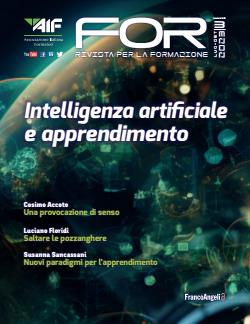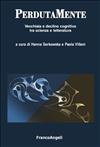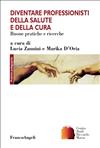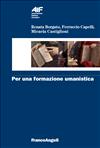
LIBRI DI MICAELA CASTIGLIONI


Vecchiaia e declino cognitivo tra scienza e letteratura
Classificato come patologia neurodegenerativa dalle scienze mediche, il declino cognitivo si presta come oggetto di studio anche per le scienze umane, lungo molteplici articolazioni polari: memoria/oblio, costruzione/perdita del sé, vecchiaia/giovinezza, individuo/storia. In tale ottica, questo volume si pone come spazio di confronto per neurologi, cognitivisti, sociologi, letterati, narratologi e storici dell’arte, che si sono interrogati su un tema di crescente interesse e diffusione come quello della demenza senile.
cod. 2000.1558

Buone pratiche e ricerche
Cosa vuol dire oggi diventare professionisti della cura? E quale ruolo hanno la narrazione e la riflessività nella formazione di questi professionisti? I saggi raccolti nel volume, scritti da pedagogisti e professionisti della cura, cercano di dare risposta a queste domande, presentando esperienze educative o di ricerca, sviluppate in contesti di prevenzione e cura, e alcune pratiche formative, qui riportate con lo scopo di condividerle, ma anche d’interrogarsi criticamente su di esse.
cod. 565.2.7

Is it possible to think of the experience of beauty, or aesthetic experience, as an experience within and through which we may process, construct, revisit and problematize meanings? The objective outcome of beauty would thus take on subjective value with which to confer meaning on, and make sense of, our lives. On these and other conceptual grounds, this paper asks whether educating to beauty in museum settings (with reference to one project in particular) can offer a valid form of adult education when delivered via a cultural, self-learning and self-educational dispositive based on a narrative-autobiographical approach, in which a museum mediator who has been duly trained in self-narrative and self-reflective practices plays a key part in facilitating the learning experience. More specifically, it is proposed that educating adults to beauty may lead them to experience growth, for example by increasing their capacity for wonder or helping them to critically decentre, etc., in the encounter between their own perspective and that of others, including the museum mediator. The actors in this journey-process, that is to say, museum mediators and their interlocutors, who include both Italian and international visitors, enjoy the opportunity to experience both self-care and care for others, where care is defined as a taking on of responsibility. Finally, the author examines the equivalence between educating to beauty-educating to narrative-educating to cultural, critical, active and responsible citizenship: the last-mentioned dimension represents an increasingly urgent priority within the education and training practices targeted at adults in the contemporary era, in which territorial barriers are giving rise to a deep and complex state of crisis that may also contribute to a loss of meaning at both the individual and collective levels. The approach discussed here is situated within a broader educational-pedagogical framework and agenda that is "interioristic" and "introspect¬tive" as well as closely related to the perspective of "narrative pedagogy".

Un quadro ricco, vivace, articolato delle problematiche attuali della formazione degli adulti. Partendo dalla constatazione che la qualità di essa è estremamente disomogenea e spesso deludente, il testo indica i requisiti che la formazione deve avere per orientare i partecipanti a muoversi nella società attuale: una formazione che declini oggi i valori della cultura umanistica.
cod. 25.33



